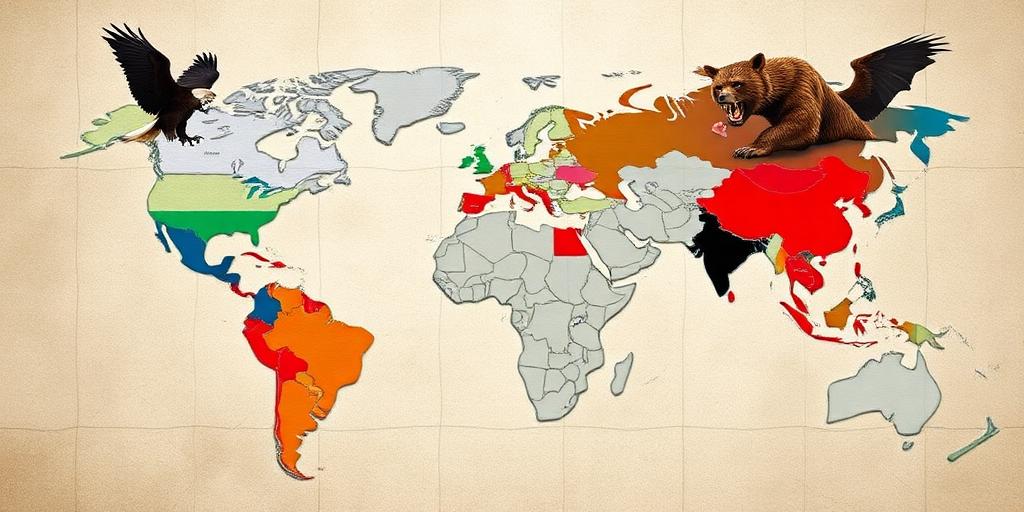Understanding Proxy Wars: Geopolitical Perspectives
In international relations, a proxy war occurs when major powers use third parties as substitutes instead of fighting each other directly. These conflicts allow major powers to engage in hostilities without risking a full-scale war, which could lead to devastating consequences.
Historical Context
Proxy wars have been a feature of international politics for centuries, but they became particularly prominent during the Cold War. The United States and the Soviet Union, as the world's two superpowers, were ideologically opposed and engaged in a global struggle for influence. Direct conflict between them was too risky, given the potential for nuclear escalation. Instead, they supported different sides in conflicts around the world, such as the Korean War, the Vietnam War, and the Angolan Civil War. These conflicts became proxy wars, with the superpowers providing funding, weapons, and training to their respective allies.
Geopolitical Implications
Proxy wars have significant geopolitical implications. They can destabilize entire regions, lead to humanitarian crises, and perpetuate conflicts. They also allow major powers to exert influence in areas where they might not otherwise be able to do so.
- Regional Instability: Proxy wars often exacerbate existing tensions and conflicts within a region. The involvement of external powers can escalate violence and lead to prolonged instability.
- Humanitarian Crises: These wars often result in widespread human suffering, including displacement, famine, and loss of life. The focus on military objectives can overshadow the needs of civilian populations.
- Great Power Competition: Proxy wars are a manifestation of great power competition. They allow major powers to compete for influence and strategic advantage without directly engaging in armed conflict.
Case Studies
- Syrian Civil War: The Syrian Civil War is a complex conflict with numerous internal and external actors. The war has become a proxy conflict between regional and international powers, each supporting different sides in the conflict.
- Yemeni Civil War: The Yemeni Civil War is another example of a proxy war, with Saudi Arabia and Iran supporting opposing sides. The conflict has resulted in a major humanitarian crisis, with millions of people in need of assistance.
- Russo-Ukrainian War: The ongoing conflict is viewed by many as a proxy war between Russia and NATO. The US and European countries are providing Ukraine with financial and military aid, short of direct military intervention.
Modern Proxy Wars
In the 21st century, proxy wars continue to be a feature of international politics. The rise of new powers, such as China, and the emergence of non-state actors, such as terrorist groups, have added new dimensions to these conflicts. Modern proxy wars are often characterized by:
- Hybrid Warfare: This involves a combination of conventional and unconventional tactics, including cyber warfare, disinformation campaigns, and support for insurgent groups.
- Non-State Actors: These play an increasingly important role in proxy wars, often acting as proxies for state actors.
- Information Warfare: The control and manipulation of information has become a key aspect of modern proxy wars.
Conclusion
Proxy wars are a complex and dangerous feature of international politics. They have significant geopolitical implications, often leading to regional instability, humanitarian crises, and the perpetuation of conflicts. Understanding the dynamics of proxy wars is essential for policymakers and scholars seeking to promote peace and security in an increasingly complex world.









